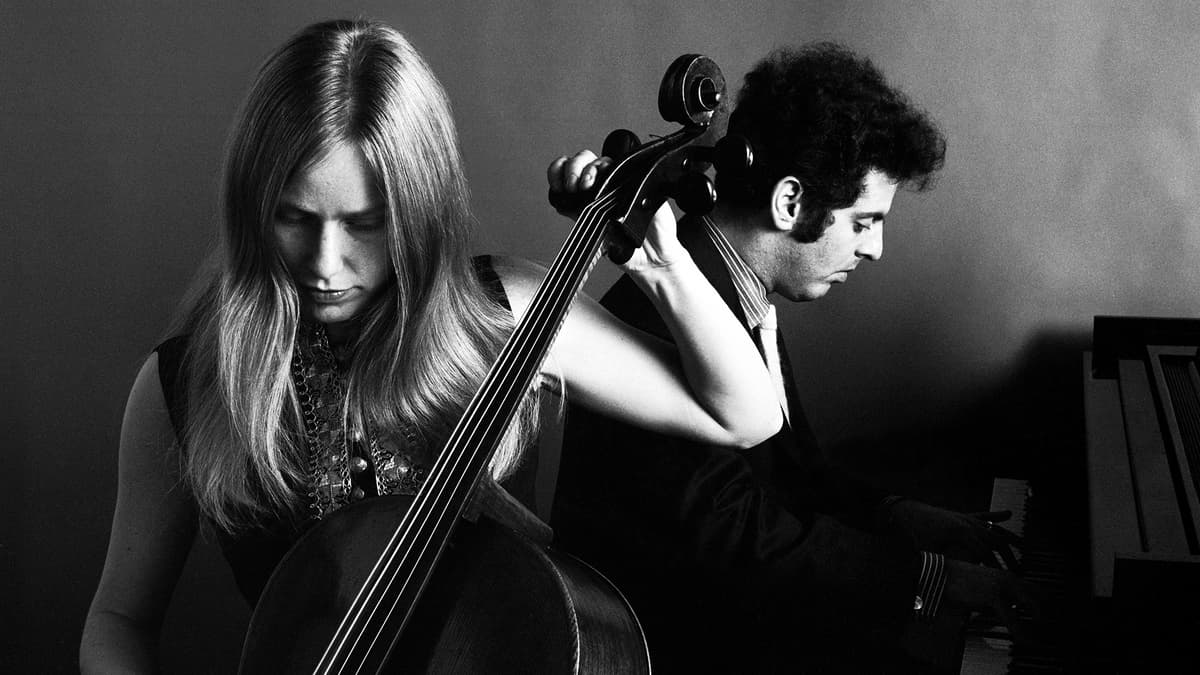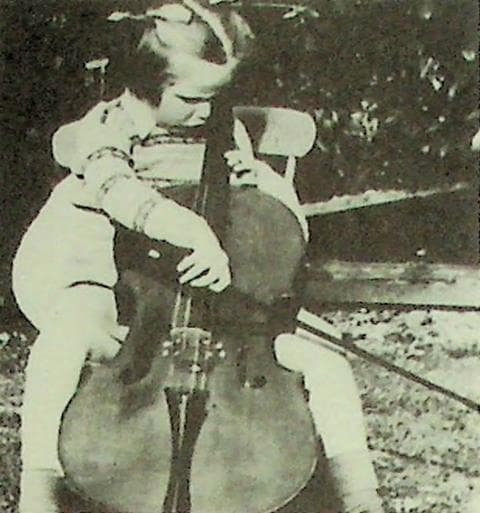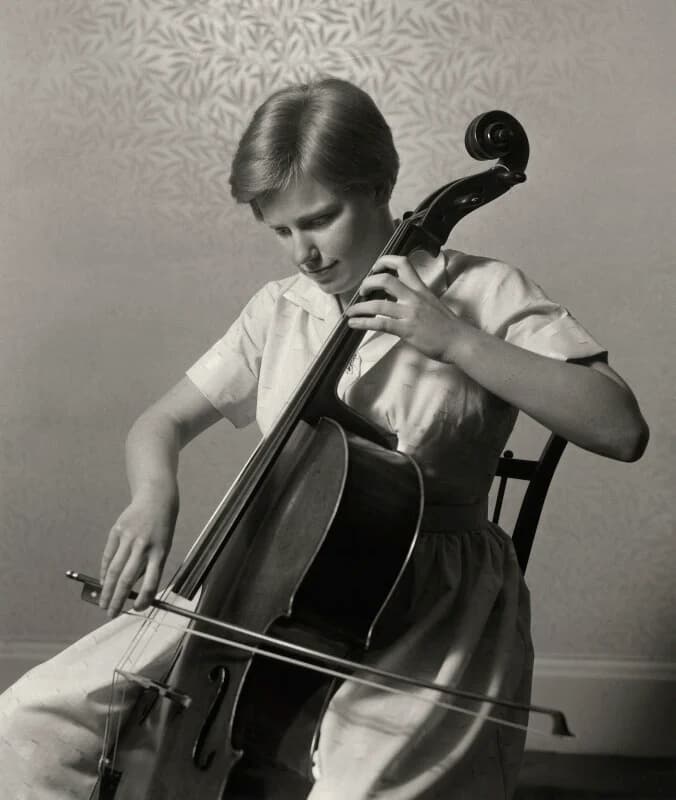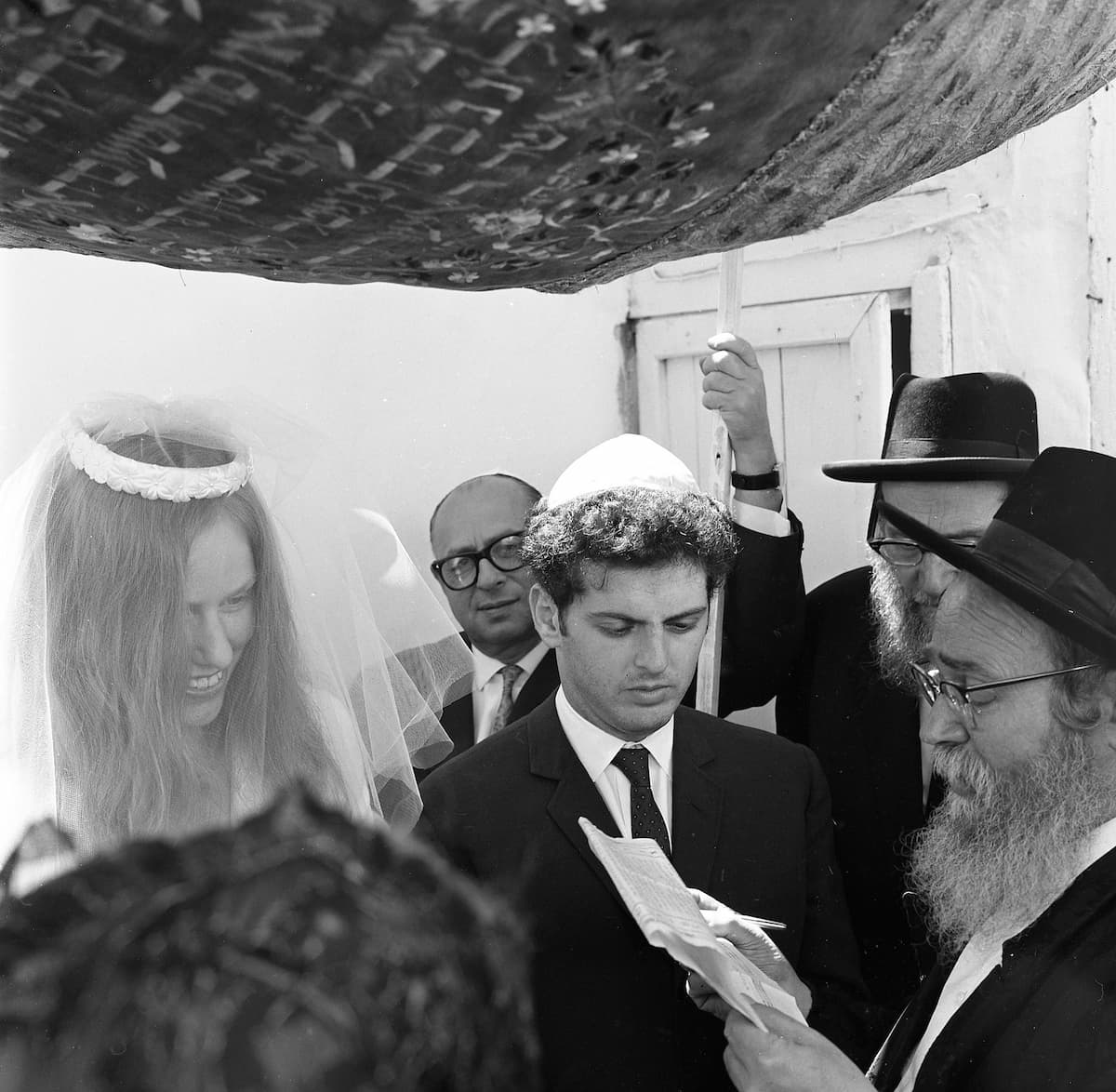Cellist Jacqueline du Pré only began to perform publicly at the age of sixteen, “yet her musical genius was evident at a very early age and its special nature was defined by her rich emotional inner world, rather than her precocious virtuosity.”

Daniel Barenboim and Jacqueline du Pré in the 1960s © Jack Robinson/Hulton Archive/Getty Images
Du Pré quickly achieved mainstream popularity, and her marriage to pianist and conductor Daniel Barenboim turned them into the “golden couple” of the music industry in the late 1960s and early 1970s. Her stellar career was cut tragically short by a diagnosis of multiple sclerosis, and she stopped performing at the age of 28.
Jacqueline du Pré Performs Elgar’s Cello Concerto
Ancestry
Jacqueline du Pré was born in Oxford, England on 26 January 1945 to Iris Greep and Derek du Pré. The name du Pré originates from the Channel Islands, yet her father Derek was actually born in Portsmouth. Yet, he always considered himself a Jersey man, “transmitting to his daughter an Islander’s proud and independent spirit.” He worked as an accountant in several London Banks, and later became editor of The Accountant.

The very young Jacqueline du Pré
Du Pré’s musical talent came from her mother, Iris Greep, a professional pianist. She had come from a humble Devon Family, but was winning prizes at local music festivals at an early age. Iris went to London to take her performing diploma and was determined to become a professional musician. Eventually she enrolled at the Royal Academy of Music, and in 1938, she went to Poland to study with Egon Petri.
Gabriel Fauré: Élégie, Op. 24 (Jacqueline du Pré, cello; Gerald Moore, piano)
First Years
During her studies in Poland, Iris met the young Englishman Derek du Pré, who was taking a walking holiday in the Carpathian mountains. They got married on 25 July 1940 at Kensington Register Office and their first child Hilary, was born in April 1942. Jacqueline Mary came along a couple of years later, and Iris immediately recognised Jackie’s unique talent.
Jackie was four years of age when she heard the sound of the cello on the radio, and she immediately asked for a cello of her own. According to her mother, the child was overjoyed at being given “a full-sized whopper,” and Iris started teaching her daughter. In fact, she composed little educational pieces accompanied by illustrations, before Jackie was enrolled at the London Violoncello School at age five and took lessons with Alison Dalrymple.
Robert Schumann: Cello Concerto in A Minor, Op. 129 (Jacqueline du Pré, cello; New Philharmonia Orchestra; Daniel Barenboim, cond.)
Gifted Educator or Tyrannical Parent?

Jacqueline du Pré © National Portrait Gallery London
Jacqueline du Pré’s musical talents and potential were recognised by her parents and teachers at a very young age. One train of thought suggests that to “her mother’s credit, while instantly recognising Jackie’s special gifts, she saw to it that they were protected, carefully nurtured and only gradually exposed to the light.” There certainly was resistance to push young Jacqueline into the public arena, and to protect her from exploitation.
A more recent medical study has concluded, however, that “Jackie’s relationship with her mother became one of symbiotic dependence from which neither party could free herself. The child was neither allowed to be a child nor permitted to grow up to be an adult.” The idea behind that claim is that these symbiotic relationships suppress a child’s voice, because it becomes impossible to explore his or her own beliefs, emotions, ideas, and thoughts separate from the parents.
Ludwig van Beethoven: Cello Sonata No. 5 in D Major, Op. 102, No. 2 (Jacqueline du Pré, cello; Stephen Kovacevich, piano)
Music as a Mode of Communication

Jacqueline du Pré and Daniel Barenboim
Apparently, Jackie was a sensitive child, quiet and she was “said to have been placid, except when playing the cello.” It has been argued that “the scars from her childhood made it difficult for her to communicate emotionally to an outside world so her mode of communication became her music.” Music became her emotional outlet, and “she created an image of herself as a passionate, almost manic virtuoso, completely the opposite of her more quiet, reserved self.”
Without doubt, du Pré’s stage presence was marked by a good deal of physical movement, which not everyone agreed with. As a scholar writes, “her faults were those of generosity, but she engaged in a tendency to self-indulge and use intensified mannerisms.” Some critics have actually likened her stage persona to that of a rock star. She was completely uninhibited with hair flying and body swaying. According to a friend, du Pré “felt a brick wall was blocking her communication with the outside world—it immediately vanished when she played for an audience, and she felt able to speak at last.”
For more of the best in classical music, sign up for our E-Newsletter

Great Du Pre story